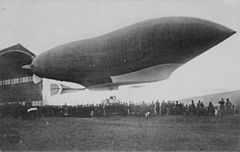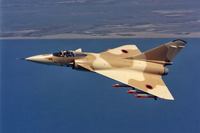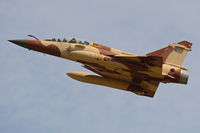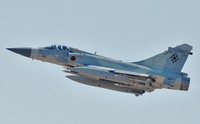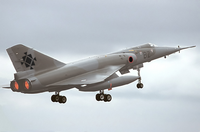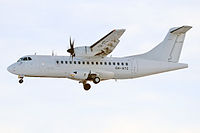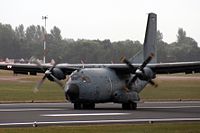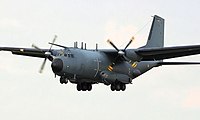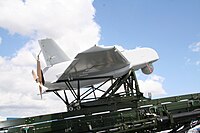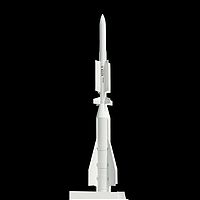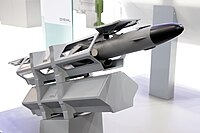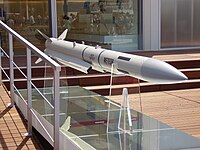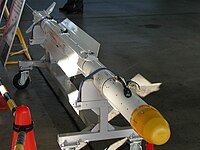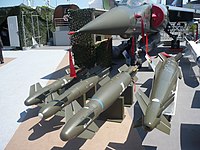Talaharan Air Corps: Difference between revisions
mNo edit summary |
mNo edit summary |
||
| (10 intermediate revisions by the same user not shown) | |||
| Line 1: | Line 1: | ||
{{Infobox military unit | {{Infobox military unit | ||
| unit_name = [[Talahara|UCDF Air Corps]] | | unit_name = [[Talahara|UCDF Air Corps]] | ||
| native_name = | | native_name = ⵜⴰⴼⴻⴽⴽⴰ ⵏ ⵎⴻⵏⵖⵉ ⵏ ⵉⴳⵏⴰ</br>Tafekka n Menɣi n Igna | ||
| image = Talaharan Air Roundel.svg | | image = Talaharan Air Roundel.svg | ||
| image_size = 150 | | image_size = 150 | ||
| alt = | | alt = | ||
| caption = Roundel of the Talaharan Air Corps | | caption = Roundel of the Talaharan Air Corps | ||
| dates = Since {{Start date and age|1922|df=yes}} | | dates = {{nowrap|Since {{Start date and age|1922|df=yes}}}} | ||
| disbanded = | | disbanded = | ||
| country = {{flag|Talahara}} | | country = {{flag|Talahara}} | ||
| Line 29: | Line 29: | ||
| equipment_label = | | equipment_label = | ||
| battles = {{Collapsible list| | | battles = {{Collapsible list| | ||
| Liberation of | | [[History_of_Talahara#Modern_era_(1838-1950)|Liberation of Taršiš]] | ||
| [[Third Uhlangan Civil War]] | |||
}} | |||
| decorations = | | decorations = | ||
| battle_honours = | | battle_honours = | ||
| Line 54: | Line 56: | ||
| identification_symbol_5_label = | | identification_symbol_5_label = | ||
}} | }} | ||
The '''Talaharan Air Corp''', ({{wp|Central Atlas Tamazight|Takelat}}: '' | The '''Talaharan Air Corp''', ({{wp|Central Atlas Tamazight|Takelat}}: ''Tafekka n Menɣi n Igna''; ⵜⴰⴼⴻⴽⴽⴰ ⵏ ⵎⴻⵏⵖⵉ ⵏ ⵉⴳⵏⴰ), officially the '''United Communes Defense Forces Air Corps''', is the aerial warfare branch of the [[United Communes Defense Forces]]. The UCDF Air Corps has a fleet of 432 aircraft, including 285 fixed-wing combat aircraft. The branch consists of 31,375 personnel with further administrative assistance from the [[Talaharan Black Guard Corps|Black Guard Corps]] as well. The senior representative of the Air Corps at the Defense Committee is General Zidan Šawis. Wing Sergeant-Major Siman Anamar holds the elected representative seat. | ||
The main missions of the Talaharan Air Corps are air defense, local air superiority, and aerial border patrolling. The Air Corps also supports the [[Talaharan Navy Corps|Navy Corps]] in littoral defense and maritime aviation. | The main missions of the Talaharan Air Corps are air defense, local air superiority, and aerial border patrolling. The Air Corps also supports the [[Talaharan Navy Corps|Navy Corps]] in littoral defense and maritime aviation. | ||
| Line 65: | Line 67: | ||
[[File:Patrie -Verdun -Nov1907 (retouched).JPG|240px|thumb|right|Talaharan semi-rigid airship, c. 1908]] | [[File:Patrie -Verdun -Nov1907 (retouched).JPG|240px|thumb|right|Talaharan semi-rigid airship, c. 1908]] | ||
Prior to the inception of the Air Corps, balloons, airships, and early fixed-wing aircraft had been employed by both the Army Corps and Navy corps as observation platforms and limited bombing units. The [[West Scipian Wars#Second West Scipian War (1915-1918)|Second West Scipian War]] saw the introduction of massed air doctrine in the region. While the United Communes of Talahara did not participate in the conflict, independent observers reported on novel use cases and the development of air doctrine to the military theorists of Talahara. In 1922, the UCDF Air Corps was founded as the fourth branch of the Defense Forces. | Prior to the inception of the Air Corps, balloons, airships, and early fixed-wing aircraft had been employed by both the Army Corps and Navy corps as observation platforms and limited bombing units. The [[West Scipian Wars#Second West Scipian War (1915-1918)|Second West Scipian War]] saw the introduction of massed air doctrine in the region. While the United Communes of Talahara did not participate in the conflict, independent observers reported on novel use cases and the development of air doctrine to the military theorists of Talahara. In 1922, the UCDF Air Corps was founded as the fourth branch of the Defense Forces. | ||
[[File:Dewoitine 520 ON004.jpg|240px|thumb|left|{{wp|Dewoitine D.520|AGMA | [[File:Dewoitine 520 ON004.jpg|240px|thumb|left|{{wp|Dewoitine D.520|AGMA T47 Swift fighter plane}}, c. 1937]] | ||
The new Air Corps was divided into two divisions. The first division consolidated the dirigible airship assets of the Army Corps and Navy Corps into a single organization, with airship groups as the immediate subgroup assigned to land or sea missions. The second, initially smaller division was the wing division, with three wing groups eventually filled with three squadrons of fixed-wing craft each. Throughout the 1920s, the wing division grew substantially, with three wing groups growing to five by the end of the decade. Fixed-wing technology was also advancing rapidly, accelerated in Talahara with the [[Rubric_Coast_Consortium#Development_and_logistics|1933 Joint Development Agreement]] with [[Tyreseia]] and the covert acquisition of foreign aircraft. At the same time, the airship division remained largely stagnant. Faster fixed-winged aircraft were able to enter and exit target zones for reconnaissance faster than the airships, and the dirigibles were too slow to evade fire from planes in exercises, even despite the fact that they could bombard targets from higher elevations. As the use cases for airships diminished, the airship division began to crawl back their numbers. | The new Air Corps was divided into two divisions. The first division consolidated the dirigible airship assets of the Army Corps and Navy Corps into a single organization, with airship groups as the immediate subgroup assigned to land or sea missions. The second, initially smaller division was the wing division, with three wing groups eventually filled with three squadrons of fixed-wing craft each. Throughout the 1920s, the wing division grew substantially, with three wing groups growing to five by the end of the decade. Fixed-wing technology was also advancing rapidly, accelerated in Talahara with the [[Rubric_Coast_Consortium#Development_and_logistics|1933 Joint Development Agreement]] with [[Tyreseia]] and the covert acquisition of foreign aircraft. At the same time, the airship division remained largely stagnant. Faster fixed-winged aircraft were able to enter and exit target zones for reconnaissance faster than the airships, and the dirigibles were too slow to evade fire from planes in exercises, even despite the fact that they could bombard targets from higher elevations. As the use cases for airships diminished, the airship division began to crawl back their numbers. | ||
In 1936, the Air Corps was reorganized into four air groups, with wings organized beneath. The airship division was effectively folded into the fixed-wing division, with remaining airships merged into airlift or reconnaissance wings. For all intents and purposes though, the United Communes terminated further developments of airship technology. Fixed-wing aircraft would continue to advance rapidly. By the second half of the 1940s, jet engines were being developed for military applications. Talahara and Tyreseia developed a testbed jet engine in 1948 and had its first prototype jet fighter in the air by 1950. The {{wp|Dassault Ouragan|AGMA P58 Lightning}} first entered into active service in 1951. | In 1936, the Air Corps was reorganized into four air groups, with wings organized beneath. The airship division was effectively folded into the fixed-wing division, with remaining airships merged into airlift or reconnaissance wings. For all intents and purposes though, the United Communes terminated further developments of airship technology. Fixed-wing aircraft would continue to advance rapidly. By the second half of the 1940s, jet engines were being developed for military applications. Talahara and Tyreseia developed a testbed jet engine in 1948 and had its first prototype jet fighter in the air by 1950. The {{wp|Dassault Ouragan|AGMA P58 Lightning}} first entered into active service in 1951. | ||
[[File:Ouragan de Dassault.jpg|300px|thumb|left|AGMA P58 Lightning jet fighter-bomber, c. 1953]] | [[File:Ouragan de Dassault.jpg|300px|thumb|left|{{wp|Dassault Ouragan|AGMA P58 Lightning jet fighter-bomber}}, c. 1953]] | ||
The Liberation of | The Liberation of Taršiš was the first service-wide deployment of the UCDF, though only a handful of jet fighters was available for deployment during the operation. The Army Corps's land invasion of the Yisraeli-backed Protectorate of Tarshish was backed by naval landings and air power. In addition to bombing strategic targets at the onset of the raid, Talaharan aircraft maintained air superiority and provided close air support for ground troops. The Liberation took two weeks, at the end of which the Protectorate surrendered and the territory was restored to the United Communes. | ||
Despite the limited participation of jet fighters in the Liberation, the operation had served as a test case for several technologies and the Rubric Coast was quickly on the heels of other international developments in jet aircraft with the first test flight of the {{wp|Dassault Mystère IV|AGMA P61 Lightning II}} in 1956. The United Aeronautics Syndicate was established as Talahara's first wholly-domestic aircraft design and production firm in 1955 and their first combat aircraft, the {{wp|Dassault Mirage III|N65 Vindicator}} entered into service in 1961, quickly becoming the mainline fighter of the Talaharan Air Corps by the end of the decade. The | Despite the limited participation of jet fighters in the Liberation, the operation had served as a test case for several technologies and the Rubric Coast was quickly on the heels of other international developments in jet aircraft with the first test flight of the {{wp|Dassault Mystère IV|AGMA P61 Lightning II}} in 1956. The United Aeronautics Syndicate was established as Talahara's first wholly-domestic aircraft design and production firm in 1955 and their first combat aircraft, the {{wp|Dassault Mirage III|N65 Vindicator}} entered into service in 1961, quickly becoming the mainline fighter of the Talaharan Air Corps by the end of the decade. The {{wp|Dassault Mirage 5|N65/76 Voyager}} was introduced in 1967 as an attack variant. Both the Vindicator and the Voyager saw extensive use during the [[Third Uhlangan Civil War]]. | ||
By the latter half of the 1970s, military thinking had tempered on pure air superiority doctrine. Thus, the necessity for a multirole fighter had become evident to the Air Corps. The {{wp|Dassault Mirage 2000|NA87 Spirit}} introduced the United Communes's first multirole fighter. Less than a decade later, a dedicated attack aircraft variant was developed from the Spirit, the {{wp|Dassault_Mirage_2000N/2000D#Mirage_2000D|NA87/95 Sunray}}. The most recent development in the Talahara fleet is the [[NA107 Chainbreaker]], another multirole aircraft with greater payload capacity and advanced systems which entered service in 2004. Over the past two decades, active service aircraft have undergone major upgrades in payloads, electrical systems, and engine power. | By the latter half of the 1970s, military thinking had tempered on pure air superiority doctrine. Thus, the necessity for a multirole fighter had become evident to the Air Corps. The {{wp|Dassault Mirage 2000|NA87 Spirit}} introduced the United Communes's first multirole fighter. Less than a decade later, a dedicated attack aircraft variant was developed from the Spirit, the {{wp|Dassault_Mirage_2000N/2000D#Mirage_2000D|NA87/95 Sunray}}. The most recent development in the Talahara fleet is the [[NA107 Chainbreaker]], another multirole aircraft with greater payload capacity and advanced systems which entered service in 2004. Over the past two decades, active service aircraft have undergone major upgrades in payloads, electrical systems, and engine power. | ||
| Line 104: | Line 106: | ||
*5 Wing | *5 Wing | ||
**21× TMT72 Griffon Vulture | **21× TMT72 Griffon Vulture | ||
**1× TAT116 Lifeline | **1× TAT116 Lifeline | ||
**15× MT97 Heron | **15× MT97 Heron | ||
*9 Wing | *9 Wing | ||
**6× NT70 Seamaster | **6× NT70 Seamaster | ||
| | | | ||
*12 Wing | *12 Wing | ||
**15× NA107 Chainbreaker | **15× NA107 Chainbreaker | ||
| Line 154: | Line 152: | ||
*7 Wing | *7 Wing | ||
**21× TMT72 Griffon Vulture | **21× TMT72 Griffon Vulture | ||
**1× TAT116 Lifeline | **1× TAT116 Lifeline | ||
**15× MT97 Heron | **15× MT97 Heron | ||
|} | |} | ||
The UCDF Air Corps has eight organizational groups, six of which are standard air groups and two of which are special command groups. The first command group is the Air Command & Development Group. Air Command has two wings: 1 Wing - Air Command & Flight School and 11 Wing - Research & Development. 1 Wing includes both the central headquarters for the branch and flight schools for helicopters, fixed-wing rotorcraft, and jet aircraft primarily based out of Gawawa. The second command group, Missile Command, is made up of two air defense battalions which are armed with anti-air and missile interceptor missiles deployed from various emplacements across Talahara. The six air groups each contain a mixture of multirole combat wings and special service wings, including airlift, search and rescue, maritime aviation, and attack helicopter wings. | The UCDF Air Corps has eight organizational groups, six of which are standard air groups and two of which are special command groups. The first command group is the Air Command & Development Group. Air Command has two wings: 1 Wing - Air Command & Flight School and 11 Wing - Research & Development. 1 Wing includes both the central headquarters for the branch and flight schools for helicopters, fixed-wing rotorcraft, and jet aircraft primarily based out of Gawawa. The second command group, Missile Command, is made up of two air defense battalions which are armed with anti-air and missile interceptor missiles deployed from various emplacements across Talahara. The six air groups each contain a mixture of multirole combat wings and special service wings, including airlift, search and rescue, maritime aviation, and attack helicopter wings. | ||
| Line 204: | Line 199: | ||
|- | |- | ||
|{{wp|Airbus A330 MRTT|TAT116 Lifeline}} | |{{wp|Airbus A330 MRTT|TAT116 Lifeline}} | ||
|[[File: | |[[File:U.S. joins in French-hosted ground, air capabilities display in Djibouti 220115-F-NS874-1250.jpg|200px|center]] | ||
|{{flag|Tsurushima}} | |{{flag|Tsurushima}} | ||
|{{wp|Aerial refueling|Aerial tanker}} | |{{wp|Aerial refueling|Aerial tanker}} | ||
| Line 218: | Line 213: | ||
!Quantity | !Quantity | ||
!Notes | !Notes | ||
|- | |- | ||
|{{wp|ATR 72|MT97/C1 Egret}} | |{{wp|ATR 72|MT97/C1 Egret}} | ||
| Line 239: | Line 227: | ||
|10 | |10 | ||
|Cargo capacity of 5.5 tonnes, transport capacity of 48 infantry or 32 stretchers | |Cargo capacity of 5.5 tonnes, transport capacity of 48 infantry or 32 stretchers | ||
|- | |||
|{{wp|Transall C-160|TMT72 Griffon Vulture}} | |||
|[[File:Transall (5089484505).jpg|200px|center]] | |||
|{{flag|Tsurushima}} | |||
|{{wp|Military transport aircraft|Transport aircraft}} | |||
|42 | |||
|Cargo capacity of 16 tonnes, transport capacity of 93 infantry, 88 paratroopers, or 62 stretchers | |||
|- | |||
|{{nowrap|{{wp|Transall_C-160#Second-generation_production|TMT72/96 Black Vulture}}}} | |||
|[[File:C160 Gabriel - RIAT 2005 (3067553521).jpg|200px|center]] | |||
|{{flag|Tsurushima}} | |||
|{{wp|SIGINT|SIGINT aircraft}} | |||
|4 | |||
| | |||
|- | |- | ||
|{{wp|Saab 340 AEW&C|WMT103 Raven}} | |{{wp|Saab 340 AEW&C|WMT103 Raven}} | ||
| Line 244: | Line 246: | ||
|{{nowrap|{{flag|Wazheganon}}}} | |{{nowrap|{{flag|Wazheganon}}}} | ||
|{{wp|AEW&C|AEW&C aircraft}} | |{{wp|AEW&C|AEW&C aircraft}} | ||
|4 | |4 | ||
| | | | ||
| Line 262: | Line 257: | ||
|- | |- | ||
|{{wp|Super King Air|MT81 Dragonfly}} | |{{wp|Super King Air|MT81 Dragonfly}} | ||
|[[File: | |[[File:Shadow R1 ISTAR Aircraft at RAF Waddington MOD 45153426.jpg|200px|center]] | ||
|{{flag|Talahara}} | |{{flag|Talahara}} | ||
|{{wp|ISTAR}}/{{wp|trainer aircraft}} | |{{wp|ISTAR}}/{{wp|trainer aircraft}} | ||
|10 | |10 | ||
| | |||
|- | |||
|{{wp|SAGEM Sperwer|MX110 Vision}} | |||
|[[File:Salon du Bourget 20090619 071.jpg|200px|center]] | |||
|{{flag|Talahara}} | |||
|{{wp|Reconaissance}} {{wp|UAV}} | |||
|12 | |||
| | | | ||
|- | |- | ||
| Line 272: | Line 274: | ||
|{{flag|Talahara}} | |{{flag|Talahara}} | ||
|{{wp|Reconaissance}} {{wp|UAV}} | |{{wp|Reconaissance}} {{wp|UAV}} | ||
| | |11 | ||
| | | | ||
|} | |} | ||
| Line 482: | Line 440: | ||
|'''Insignia'''|| [[File:Messidor OF-9.png|75px]] || [[File:Messidor OF-8.png|75px]] || [[File:Messidor OF-7.png|75px]] || [[File:Messidor OF-6.png|75px]] || [[File:Messidor OF-5.png|75px]] || [[File:Messidor OF-4.png|75px]] || [[File:Messidor OF-3.png|75px]] || [[File:Messidor OF-2.png|75px]] || [[File:Messidor OF-1.png|75px]] | |'''Insignia'''|| [[File:Messidor OF-9.png|75px]] || [[File:Messidor OF-8.png|75px]] || [[File:Messidor OF-7.png|75px]] || [[File:Messidor OF-6.png|75px]] || [[File:Messidor OF-5.png|75px]] || [[File:Messidor OF-4.png|75px]] || [[File:Messidor OF-3.png|75px]] || [[File:Messidor OF-2.png|75px]] || [[File:Messidor OF-1.png|75px]] | ||
|- style="text-align:center;" | |- style="text-align:center;" | ||
|'''{{wp|Central Atlas Tamazight|Takelat}} name'''|| | |'''{{wp|Central Atlas Tamazight|Takelat}} name'''|| ⴰⵖⴻⵍⵍⴰ || ⴰⵖⴻⵍⵍⴰ ⴰⵏⵎazⴰⵍ || ⴰⵎⴰⵜⵓ ⵏ</br>ⴰⴳⵔⴰⵡ ||ⴰⵎⴰⵜⵓ ⵏ</br>ⴰⴼⵔⵉⵡⴻⵏ || ⴰⵎⴰⵜⵓ ⵏ</br>ⵜⴰⵔⴱⴰⵄⵜ || ⴰⵇⴻⴱⵟ || ⴰⵇⴻⴱⵟ ⴰⵏⵎazⴰⵍ || ⴰⵎⴹⵉⵇ || ⴰⵎⴹⵉⵇ ⴰⵎⴻkⵟⵓⵃ | ||
|- style="text-align:center;" | |- style="text-align:center;" | ||
|'''Transliteration'''|| '' | |'''Transliteration'''|| ''Aɣella'' || ''Aɣella Anmazul'' || ''Amatu n</br>Agraw'' || ''Amatu n</br>Afriwen'' || ''Amatu n</br>Tarbaɛt'' || ''Aqebṭ'' || ''Aqebṭ Anmazul'' || ''Amḍiq'' || ''Amḍiq Amekṭuḥ'' | ||
|- style="text-align:center;" | |- style="text-align:center;" | ||
|'''Translation'''|| General || Vice-General || Group</br>Commander || Wing</br>Commander || Squadron</br>Commander || | |'''Translation'''|| General || Vice-General || Group</br>Commander || Wing</br>Commander || Squadron</br>Commander || Captain || Vice-Captain || Lieutenant || Junior Lieutenant | ||
|} | |} | ||
| Line 496: | Line 454: | ||
|'''Insignia'''|| [[File:Messidor OR-9.png|75px]] || [[File:Messidor OR-8.png|75px]] || [[File:Messidor OR-7.png|75px]] || [[File:Messidor OR-6.png|75px]] || [[File:Messidor OR-5.png|75px]] || [[File:Messidor OR-4.png|75px]] || [[File:Messidor OR-3.png|75px]] || [[File:Messidor OR-2.png|75px]] || [[File:Messidor OR-1.png|75px]] | |'''Insignia'''|| [[File:Messidor OR-9.png|75px]] || [[File:Messidor OR-8.png|75px]] || [[File:Messidor OR-7.png|75px]] || [[File:Messidor OR-6.png|75px]] || [[File:Messidor OR-5.png|75px]] || [[File:Messidor OR-4.png|75px]] || [[File:Messidor OR-3.png|75px]] || [[File:Messidor OR-2.png|75px]] || [[File:Messidor OR-1.png|75px]] | ||
|- style="text-align:center;" | |- style="text-align:center;" | ||
|'''{{wp|Central Atlas Tamazight|Takelat}} name'''|| | |'''{{wp|Central Atlas Tamazight|Takelat}} name'''|| ⴰⵇⴻⵔⵔⵓⵎⴻⵏⵣⴰⴷ</br>ⵏ ⴰⴼⵔⵉⵡⴻⵏ || ⴰⵇⴻⵔⵔⵓⵎⴻⵏⵣⴰⴷ</br>ⵏ ⵜⴰⵔⴱⴰⵄⵜ || ⴰⵇⴻⵔⵔⵓⵎⴻⵏⵣⴰⴷ</br>ⵏ ⵡⴰⴼⴼⵓⴳ || ⴰⵇⴻⵔⵔⵓⵎⴻⵏⵣⴰⴷ</br>ⵏ ⵙⴰⵄⴰ || ⴰⵇⴻⵔⵔⵓ</br>ⵏ ⵙⴰⵄⴰ || ⴰⵜⵉⴽⵏⵉⵢⴻⵏⴽⵔⴰⴷ || ⴰⵜⵉⴽⵏⵉⵢⴻⵏⵙⵉⵏ || ⴰⵜⵉⴽⵏⵉⵢⴻⵏⵢⴰⵏ || ⵏⴻⵍⵎⴰⴷⴻⵏ</br>ⵏ ⵢⵉⴳⵏⴰ | ||
|- style="text-align:center;" | |- style="text-align:center;" | ||
|'''Transliteration'''|| | |'''Transliteration'''|| Aqerrumenzad</br>n Afriwen || Aqerrumenzad</br>n Tarbaɛt || Aqerrumenzad</br>n Waffug || Aqerrumenzad</br>n Saɛa || Aqerru</br>n Saɛa || ''Atikniyenkrad'' || ''Atikniyensin'' || ''Atikniyenyan'' || ''Nelmaden</br>n Yigna'' | ||
|- style="text-align:center;" | |- style="text-align:center;" | ||
|'''Translation'''|| Wing</br>Sergeant-Major || Squadron</br>Sergeant-Major || Flight</br>Sergeant-Major || Watch</br>Sergeant-Major || Watch</br>Sergeant || Aviator III || Aviator II || Aviator I || Air Cadet | |'''Translation'''|| Wing</br>Sergeant-Major || Squadron</br>Sergeant-Major || Flight</br>Sergeant-Major || Watch</br>Sergeant-Major || Watch</br>Sergeant || Aviator III || Aviator II || Aviator I || Air Cadet | ||
| Line 505: | Line 463: | ||
==See also== | ==See also== | ||
*[[United Communes Defense Forces]] | *[[United Communes Defense Forces]] | ||
*[[Talaharan | *[[Talaharan Army Corps]] | ||
*[[Talaharan | *[[Talaharan Navy Corps]] | ||
*[[Talaharan | *[[Talaharan Black Guard Corps]] | ||
*[[Jet fighter generations (Ajax)|Jet fighter generations]] | *[[Jet fighter generations (Ajax)|Jet fighter generations]] | ||
Latest revision as of 16:48, 31 August 2024
| UCDF Air Corps | |
|---|---|
| ⵜⴰⴼⴻⴽⴽⴰ ⵏ ⵎⴻⵏⵖⵉ ⵏ ⵉⴳⵏⴰ Tafekka n Menɣi n Igna | |
 Roundel of the Talaharan Air Corps | |
| Active | Since 1922 |
| Country | |
| Type | Air force |
| Role | Aerial warfare |
| Size | 438 aircraft 31,400 personnel |
| Part of | United Communes Defense Forces |
| Colours | Black Red Steel blue |
| Engagements | |
| Commanders | |
| Commander-in-Chief | Executive Council |
| Executor of Defense | Taos Jebar |
| Defense Committee Senior Representative | General Zidan Šawis |
| Defense Committee Enlisted Representative | Wing Sergeant-Major Siman Anamar |
| Insignia | |
| Roundel |  |
| Roundel (low visibility) |  |
| Fin flash |  |
The Talaharan Air Corp, (Takelat: Tafekka n Menɣi n Igna; ⵜⴰⴼⴻⴽⴽⴰ ⵏ ⵎⴻⵏⵖⵉ ⵏ ⵉⴳⵏⴰ), officially the United Communes Defense Forces Air Corps, is the aerial warfare branch of the United Communes Defense Forces. The UCDF Air Corps has a fleet of 432 aircraft, including 285 fixed-wing combat aircraft. The branch consists of 31,375 personnel with further administrative assistance from the Black Guard Corps as well. The senior representative of the Air Corps at the Defense Committee is General Zidan Šawis. Wing Sergeant-Major Siman Anamar holds the elected representative seat.
The main missions of the Talaharan Air Corps are air defense, local air superiority, and aerial border patrolling. The Air Corps also supports the Navy Corps in littoral defense and maritime aviation.
The UCDF Air Corps was founded in 1922 with the advent of combat-effective fixed-winged aircraft. Previously, military aviation and aerial reconnaissance units were maintained by both the Army Corps and the Navy Corps. The early Air Corps had two major divisions: the wing division and the airship division. The airship division declined in use and development as fixed-wing aircraft advanced to faster, well-armed, and comparatively more durable units. In 1936, the Air Corps was reorganized with airships taking an ancillary role.
The new organization replaced the two air divisions with a set of air groups under a central command group. At present, there are six air groups, including the command group. Each air group generally has two wings under their command. Each wing has its own airbase, housing up to three squadrons.
History
Prior to the inception of the Air Corps, balloons, airships, and early fixed-wing aircraft had been employed by both the Army Corps and Navy corps as observation platforms and limited bombing units. The Second West Scipian War saw the introduction of massed air doctrine in the region. While the United Communes of Talahara did not participate in the conflict, independent observers reported on novel use cases and the development of air doctrine to the military theorists of Talahara. In 1922, the UCDF Air Corps was founded as the fourth branch of the Defense Forces.

The new Air Corps was divided into two divisions. The first division consolidated the dirigible airship assets of the Army Corps and Navy Corps into a single organization, with airship groups as the immediate subgroup assigned to land or sea missions. The second, initially smaller division was the wing division, with three wing groups eventually filled with three squadrons of fixed-wing craft each. Throughout the 1920s, the wing division grew substantially, with three wing groups growing to five by the end of the decade. Fixed-wing technology was also advancing rapidly, accelerated in Talahara with the 1933 Joint Development Agreement with Tyreseia and the covert acquisition of foreign aircraft. At the same time, the airship division remained largely stagnant. Faster fixed-winged aircraft were able to enter and exit target zones for reconnaissance faster than the airships, and the dirigibles were too slow to evade fire from planes in exercises, even despite the fact that they could bombard targets from higher elevations. As the use cases for airships diminished, the airship division began to crawl back their numbers.
In 1936, the Air Corps was reorganized into four air groups, with wings organized beneath. The airship division was effectively folded into the fixed-wing division, with remaining airships merged into airlift or reconnaissance wings. For all intents and purposes though, the United Communes terminated further developments of airship technology. Fixed-wing aircraft would continue to advance rapidly. By the second half of the 1940s, jet engines were being developed for military applications. Talahara and Tyreseia developed a testbed jet engine in 1948 and had its first prototype jet fighter in the air by 1950. The AGMA P58 Lightning first entered into active service in 1951.
The Liberation of Taršiš was the first service-wide deployment of the UCDF, though only a handful of jet fighters was available for deployment during the operation. The Army Corps's land invasion of the Yisraeli-backed Protectorate of Tarshish was backed by naval landings and air power. In addition to bombing strategic targets at the onset of the raid, Talaharan aircraft maintained air superiority and provided close air support for ground troops. The Liberation took two weeks, at the end of which the Protectorate surrendered and the territory was restored to the United Communes.
Despite the limited participation of jet fighters in the Liberation, the operation had served as a test case for several technologies and the Rubric Coast was quickly on the heels of other international developments in jet aircraft with the first test flight of the AGMA P61 Lightning II in 1956. The United Aeronautics Syndicate was established as Talahara's first wholly-domestic aircraft design and production firm in 1955 and their first combat aircraft, the N65 Vindicator entered into service in 1961, quickly becoming the mainline fighter of the Talaharan Air Corps by the end of the decade. The N65/76 Voyager was introduced in 1967 as an attack variant. Both the Vindicator and the Voyager saw extensive use during the Third Uhlangan Civil War.
By the latter half of the 1970s, military thinking had tempered on pure air superiority doctrine. Thus, the necessity for a multirole fighter had become evident to the Air Corps. The NA87 Spirit introduced the United Communes's first multirole fighter. Less than a decade later, a dedicated attack aircraft variant was developed from the Spirit, the NA87/95 Sunray. The most recent development in the Talahara fleet is the NA107 Chainbreaker, another multirole aircraft with greater payload capacity and advanced systems which entered service in 2004. Over the past two decades, active service aircraft have undergone major upgrades in payloads, electrical systems, and engine power.
Structure and organization
| Air Command & Development Group |
Air Group 1 | Air Group 2 | Air Group 3 |
|---|---|---|---|
|
|
|
|
| Missile Command | Air Group 4 | Air Group 5 | Air Group 6 |
|
|
|
|
The UCDF Air Corps has eight organizational groups, six of which are standard air groups and two of which are special command groups. The first command group is the Air Command & Development Group. Air Command has two wings: 1 Wing - Air Command & Flight School and 11 Wing - Research & Development. 1 Wing includes both the central headquarters for the branch and flight schools for helicopters, fixed-wing rotorcraft, and jet aircraft primarily based out of Gawawa. The second command group, Missile Command, is made up of two air defense battalions which are armed with anti-air and missile interceptor missiles deployed from various emplacements across Talahara. The six air groups each contain a mixture of multirole combat wings and special service wings, including airlift, search and rescue, maritime aviation, and attack helicopter wings.
Equipment
Aircraft
| Fixed-wing jet aircraft | |||||
|---|---|---|---|---|---|
| Model | Image | Origin | Type | Quantity | Notes |
| NA107 Chainbreaker | Multirole combat aircraft | 165 | 4+/++ generation, two 30mm internal autocannons and 14 hardpoints with 9.5 tonnes ordnance capacity | ||
| NA87/95 Sunray | Attack aircraft | 75 | 4th generation, 9 hardpoints with 6.5 tonnes ordnance capacity | ||
| NA87 Spirit | Multirole combat aircraft | 45 | 4th generation, two 30mm internal autocannons and 9 hardpoints with 6.3 tonnes ordnance capacity | ||
| NB68 Warlord | Strategic bomber/reconnaissance aircraft | 6 | Bomb bays with 10.7 tonnes ordnance capacity | ||
| TAT116 Lifeline | Aerial tanker | 2 | Fuel capacity of 111 tonnes, cargo capacity of 45 tonnes | ||
| Fixed-wing propeller aircraft | |||||
| Model | Image | Origin | Type | Quantity | Notes |
| MT97/C1 Egret | Transport aircraft | 20 | Cargo capacity of 7.5 tonnes, transport capacity of 78 infantry or 52 stretchers | ||
| MT97 Heron | Transport aircraft | 10 | Cargo capacity of 5.5 tonnes, transport capacity of 48 infantry or 32 stretchers | ||
| TMT72 Griffon Vulture | Transport aircraft | 42 | Cargo capacity of 16 tonnes, transport capacity of 93 infantry, 88 paratroopers, or 62 stretchers | ||
| TMT72/96 Black Vulture | SIGINT aircraft | 4 | |||
| WMT103 Raven | AEW&C aircraft | 4 | |||
| NT70 Seamaster | Maritime patrol aircraft | 6 | Carries two anti-ship missiles and internal bays for 2 tonnes of bombs, mines, or torpedoes | ||
| MT81 Dragonfly | ISTAR/trainer aircraft | 10 | |||
| MX110 Vision | Reconaissance UAV | 12 | |||
| MX115 Fang | Reconaissance UAV | 11 | |||
Missiles
| Model | Image | Origin | Type | Notes |
|---|---|---|---|---|
| VT3 Sky Serpent | Surface-to-air missile |
| ||
| 15T0 Starstrike | Missile interceptor |
| ||
| ET0 Dark Sky | Cruise missile |
| ||
| ET1 Black Earth | Anti-runway cruise missile |
| ||
| WXT3 Armiger | Anti-radiation missile |
| ||
| 0T1 White Night | Air-to-air missile |
| ||
| 66T1 Black Night | Air-to-air missile |
| ||
| TXT98 Shortbow | Air-to-air missile |
| ||
| TXT99 Longbow | Air-to-air missile |
| ||
| AM39T2 Shipbreaker | Anti-ship missile |
| ||
| 50T0 Sabre | Precision-guided munition |
| ||
| 30T0 Falcon | MCLOS missile |
| ||
| 24T1 Sunburst | Air-to-surface missile |
| ||
| 27T4 Lance | Anti-tank missile |
|
Ranks and insignia
Officer ranks
| OF-9 | OF-8 | OF-7 | OF-6 | OF-5 | OF-4 | OF-3 | OF-2 | OF-1 | |
|---|---|---|---|---|---|---|---|---|---|
| Insignia |  |
 |
 |
 |
 |
 |
 |
 |

|
| Takelat name | ⴰⵖⴻⵍⵍⴰ | ⴰⵖⴻⵍⵍⴰ ⴰⵏⵎazⴰⵍ | ⴰⵎⴰⵜⵓ ⵏ ⴰⴳⵔⴰⵡ |
ⴰⵎⴰⵜⵓ ⵏ ⴰⴼⵔⵉⵡⴻⵏ |
ⴰⵎⴰⵜⵓ ⵏ ⵜⴰⵔⴱⴰⵄⵜ |
ⴰⵇⴻⴱⵟ | ⴰⵇⴻⴱⵟ ⴰⵏⵎazⴰⵍ | ⴰⵎⴹⵉⵇ | ⴰⵎⴹⵉⵇ ⴰⵎⴻkⵟⵓⵃ |
| Transliteration | Aɣella | Aɣella Anmazul | Amatu n Agraw |
Amatu n Afriwen |
Amatu n Tarbaɛt |
Aqebṭ | Aqebṭ Anmazul | Amḍiq | Amḍiq Amekṭuḥ |
| Translation | General | Vice-General | Group Commander |
Wing Commander |
Squadron Commander |
Captain | Vice-Captain | Lieutenant | Junior Lieutenant |
Enlisted ranks
| OR-9 | OR-8 | OR-7 | OR-6 | OR-5 | OR-4 | OR-3 | OR-2 | OR-1 | |
|---|---|---|---|---|---|---|---|---|---|
| Insignia |  |
 |
 |
 |
 |
 |
 |
 |

|
| Takelat name | ⴰⵇⴻⵔⵔⵓⵎⴻⵏⵣⴰⴷ ⵏ ⴰⴼⵔⵉⵡⴻⵏ |
ⴰⵇⴻⵔⵔⵓⵎⴻⵏⵣⴰⴷ ⵏ ⵜⴰⵔⴱⴰⵄⵜ |
ⴰⵇⴻⵔⵔⵓⵎⴻⵏⵣⴰⴷ ⵏ ⵡⴰⴼⴼⵓⴳ |
ⴰⵇⴻⵔⵔⵓⵎⴻⵏⵣⴰⴷ ⵏ ⵙⴰⵄⴰ |
ⴰⵇⴻⵔⵔⵓ ⵏ ⵙⴰⵄⴰ |
ⴰⵜⵉⴽⵏⵉⵢⴻⵏⴽⵔⴰⴷ | ⴰⵜⵉⴽⵏⵉⵢⴻⵏⵙⵉⵏ | ⴰⵜⵉⴽⵏⵉⵢⴻⵏⵢⴰⵏ | ⵏⴻⵍⵎⴰⴷⴻⵏ ⵏ ⵢⵉⴳⵏⴰ |
| Transliteration | Aqerrumenzad n Afriwen |
Aqerrumenzad n Tarbaɛt |
Aqerrumenzad n Waffug |
Aqerrumenzad n Saɛa |
Aqerru n Saɛa |
Atikniyenkrad | Atikniyensin | Atikniyenyan | Nelmaden n Yigna |
| Translation | Wing Sergeant-Major |
Squadron Sergeant-Major |
Flight Sergeant-Major |
Watch Sergeant-Major |
Watch Sergeant |
Aviator III | Aviator II | Aviator I | Air Cadet |
